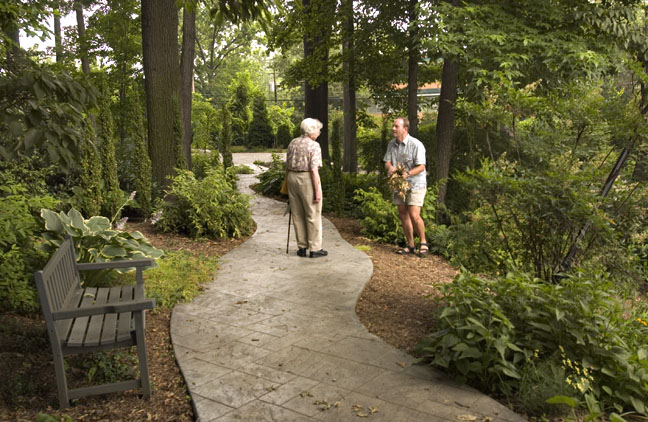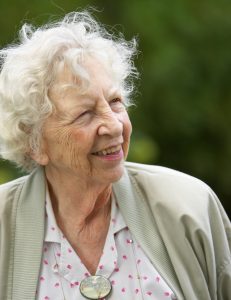 We live in an aging population. Around 14% of the population of the United States is aged 65 years or older. By 2060, it is estimated that this number will double. As we live longer and elder populations rise, the benefits of living near green space become more and more apparent. At the same time, the number of people living in towns and cities hovers around 80% placing an even greater importance on both the availability of and easy access to urban parks and green space.
We live in an aging population. Around 14% of the population of the United States is aged 65 years or older. By 2060, it is estimated that this number will double. As we live longer and elder populations rise, the benefits of living near green space become more and more apparent. At the same time, the number of people living in towns and cities hovers around 80% placing an even greater importance on both the availability of and easy access to urban parks and green space.
In a research brief written by Kathleen Wolf, PHD and Elizabeth Housley, M.A., published by Nature Sacred and the TKF foundation (The Benefits of Nearby Nature in Cities for Older Adults), Wolf and Housley reported that older individuals with access to nearby nature showed increased participation in outdoor physical activities, improved mental health and cognitive function and an increase in social interaction with those around them and their community. These benefits found through access to nature are key ingredients to our well-being as we age.
Physical Activity
Research shows that physical activity can lead to a better quality of life as we grow older. As reported in the research briefing, light exercise such as walking can result in improved health. For many older adults, however, access to walkable spaces can be difficult. Stairs, busy roads, distance or other obstacles can make it hard for those with limited mobility to walk outdoors. Providing safe routes and paths to urban green space and parks can have a positive impact on people of all ages but it becomes especially important to older members of our communities. Adults 50 and over who live within walking distance of a park use parks significantly more than individuals not within walking range of a park or other walkable space. The impact of walking is seen in studies showing that older adults who take daily outdoor walks report significantly fewer complaints in pain, sleep and other problems when compared to adults who do not go outside daily.
Like walking, gardening can also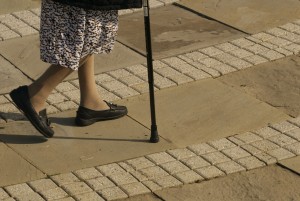 play a positive role in health as we age both physically and mentally. Older gardeners with access to a community garden report increased physical activity over those who don’t garden. They also report better health status, increased physical functioning, reduced pain and other physical benefits.
play a positive role in health as we age both physically and mentally. Older gardeners with access to a community garden report increased physical activity over those who don’t garden. They also report better health status, increased physical functioning, reduced pain and other physical benefits.
And naturally, gardeners are more likely to eat more vegetables resulting in better diets than non-gardeners of the same age.
Mental Health
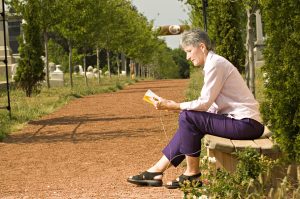 Along with the physical benefits of time spent in nature, the restorative effects of nature support mental health and well-being. In older adults, studies show that physical activity in green spaces can be linked to better moods, decreased chance of depression, reduced stress levels and improved cognitive function.
Along with the physical benefits of time spent in nature, the restorative effects of nature support mental health and well-being. In older adults, studies show that physical activity in green spaces can be linked to better moods, decreased chance of depression, reduced stress levels and improved cognitive function.
These benefits extend beyond physical activity. Studies show that the frequency and amount of time spent in nature correlate with feelings of mental restoration. An extra 30 minutes spent in nature increases this restorative effect and can be even more dramatic with individuals experiencing higher stress levels.
Even looking out a window into a garden or forest or viewing pictures of nature can contribute to a reduction in stress and improved cognitive health. These mental benefits can become especially significant in older individuals suffering from chronic stress or experiencing stressful events such as the loss of a loved one.
Social Connections
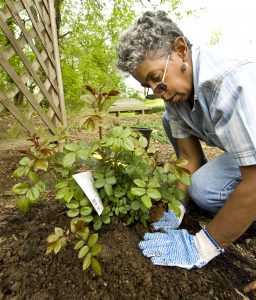 Nearby nature can increase social connections on a neighborhood level in a number of ways. From the planning and creation of neighborhood green space to positive social encounters that occur while walking or just watching nature can increase the quality of life in our aging populations. Loneliness and isolation can be an especially difficult problem for older adults and these social interactions can help alleviate some of this loneliness.
Nearby nature can increase social connections on a neighborhood level in a number of ways. From the planning and creation of neighborhood green space to positive social encounters that occur while walking or just watching nature can increase the quality of life in our aging populations. Loneliness and isolation can be an especially difficult problem for older adults and these social interactions can help alleviate some of this loneliness.
For those with limited mobility, easy access natural outdoor spaces can provide a lifeline to social interactions they might not get elsewhere. Studies show that ol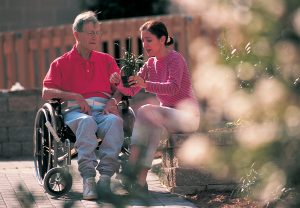 der adults who have more exposure to green common spaces report a stronger sense of unity and belonging to their community.
der adults who have more exposure to green common spaces report a stronger sense of unity and belonging to their community.
One study showed that gardening provided more than just social connections for those 70 and older. For many, gardening connected them to past and future generations providing a source of memories, social events and opportunities for spiritual healing.
Planning for the future
As our population ages, it is important we provide easy access to nature for the senior members of our communities. Walkability, proximity, benches for resting and other accommodations for the elderly need to be considered. At the same time, these spaces shouldn’t be limited to just our senior populations. They should also appeal to children and other adults as cross-generational interaction is important. Time spent in nature is beneficial no matter what the age. As we design and develop urban green space, we need to be sure that we account for the older members of our community
